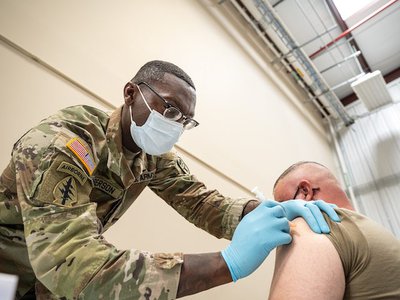Red states are leading the nation in economic recovery after COVID-19 and the lockdown-induced recession.
As indicated by the Back-to-Normal Index — a project of Moody’s Analytics and CNN Business — states that avoided or quickly removed aggressive COVID-19 responses tended to outperform states that lingered in reopening.
The economies of South Dakota and Florida are performing at 106% and 101% of pre-COVID strength, respectively. Rhode Island, Nebraska, and Idaho are all functioning at 100% pre-pandemic capacity. Other top states for economic recovery are West Virginia (98%), Nevada (97%), Montana (97%), Iowa (97%), and Arizona (96%).
Gov. Kristi Noem (R-SD) did not issue a lockdown order in the spring of 2020. Indeed, a recent survey indicated that South Dakota — in a tie with Idaho — ranked fourth in the country for state-to-state migration.
Gov. Ron DeSantis (R-FL) was among the first governors to rescind his state’s COVID-19 restrictions — a move that even earned DeSantis accolades from Florida Democrats.
“We will never do any of these lockdowns again, and I hear people say they’ll shut down the country, and honestly, I cringe,” said DeSantis in August. “And at best, what the lockdown will do is delay. It does not reduce the ultimate mortality… it creates a lot of other problems with mortality that a lot of people don’t necessarily focus on.”
Rhode Island — though controlled by Democrats — was among the first northeastern states to scale back restrictions. Former Gov. Gina Raimondo (D-RI) — who is currently serving as the Biden administration’s Secretary of Commerce — said that she was “leading from a position of confidence and strength and quite frankly, trust in the people of Rhode Island.”
Meanwhile, states that aggressively enforced their lockdowns are trailing the nation in economic recovery. Operating at 79% of pre-pandemic capacity, New York ranks last in the Back-to-Normal Index. Illinois, Massachusetts, Pennsylvania, and Oregon follow as the states with the most sluggish returns to normalcy.
The same trends are evident in states’ unemployment rates. CNN Business data reveal that while both South Dakota and Nebraska boast unemployment rates of 2.8%, over 8% of workers in New York, California, Connecticut, and Hawaii are currently jobless.







